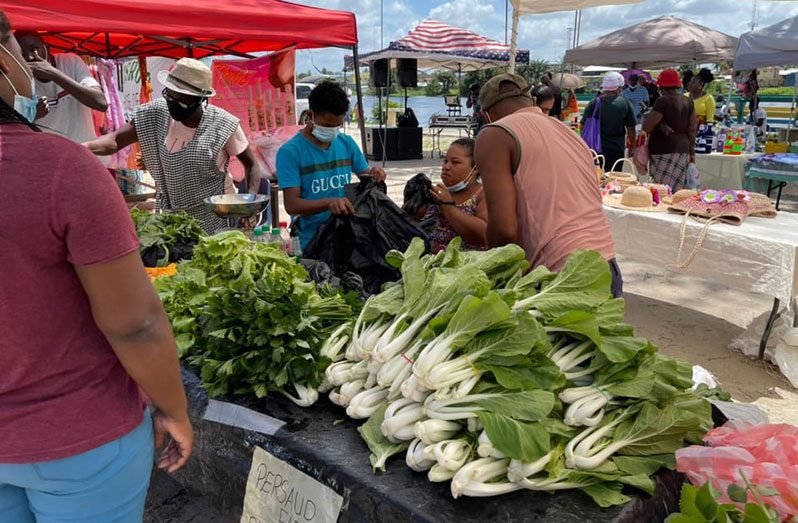IN an effort to ensure food security in Region 10 (Upper Demerara-Upper Berbice), the relevant authorities are putting agriculture at the fore of the region’s development agenda.
Mark Goring, head of the region’s agriculture committee, told the Guyana Chronicle that while the region is well-known for mining, there is great potential for the region to be recognised as an agricultural hub.

“We can have a rounded agriculture sector, we want Region 10 to be the heart of the country, since it is connected to seven regions, and we could export to other regions,” Goring highlighted adding: “We got things that would grow in Region 10 that would not grow on the coastland, like nuts and pineapples and these are the things that we must be exporting to other regions.”
Goring stated that with emphasis being placed on agriculture, the region’s economy can be elevated. “We are going to push agriculture; we see agriculture as the vehicle to drive employment and also the [sic] drive the economy of Region 10 and not just mining.”
PROJECTS
Goring disclosed that at the level of the Regional Democratic Council (RDC), there are a number of projects underway to address the immediate needs of farmers in the region, with the main one being the construction of a conservancy dam.
He further explained that the project will see better drainage and irrigation services for farmers in the region.
“We are going to build a conservancy dam in West Watooka. This dam will trap the water that is coming from the hills and the swamps and so the farmers now will have year-round water to plant,” he said.
Goring stated that the RDC is also working along with the National Drainage and Irrigation Authority (NDIA) to ensure that there is sufficient water for farmlands and that all the canals and drains in farming communities are clear.
“We are trying from the RDC level whereby we are helping people clear lands and canals, if we can’t do it on our own, we call in NDIA to send in a machine to help in drainage and irrigation so that we can ensure that water is there for persons to plant year-round.”
Additionally, to provide a market for farmers, the RDC through its agriculture committee recently launched its farmers’ market initiative under the theme, “Buy local, grow local, consume local.”
According to Goring, the initiative, which is expected to become a monthly event, will give farmers the reassurance that there is a stable market for them to sell their produce.
“The market day is the driving force because it gives persons now the opportunity to know that they have an output, they have confidence now that they can plant and don’t have to study if there is a market there.”
TRAINING
Goring disclosed that the agriculture committee will also be placing emphasis on training farmers and the youths of the region to change the way agriculture is traditionally done.
“Two of the main factors that affect agriculture in Guyana and the Caribbean are attitude and weather. So, in terms of attitude, we are going to harbour attitude by integrating ICT [Information and Communication Technology] in agriculture.”
Goring disclosed that several training programmes have already commenced in the region. “Last week we had a training programme for some farmers where we trained them smart- agriculture…we incorporated technology using devices and we believe this will actually get young people more interested in agriculture.”
He added, “I know sometimes farmers are not versed in technology, but we are going to train them, we want them to be up to date with everything that has been going on.”
Goring said the goal is to increase the region’s exports, ensure food security and provide employment.
“The endgame basically is for Linden and the region on a whole to have food security. We know for a fact there is oil and there is bauxite, but things are non- renewable resources and we know that people have to eat. We believe that food security is the way to go.”












